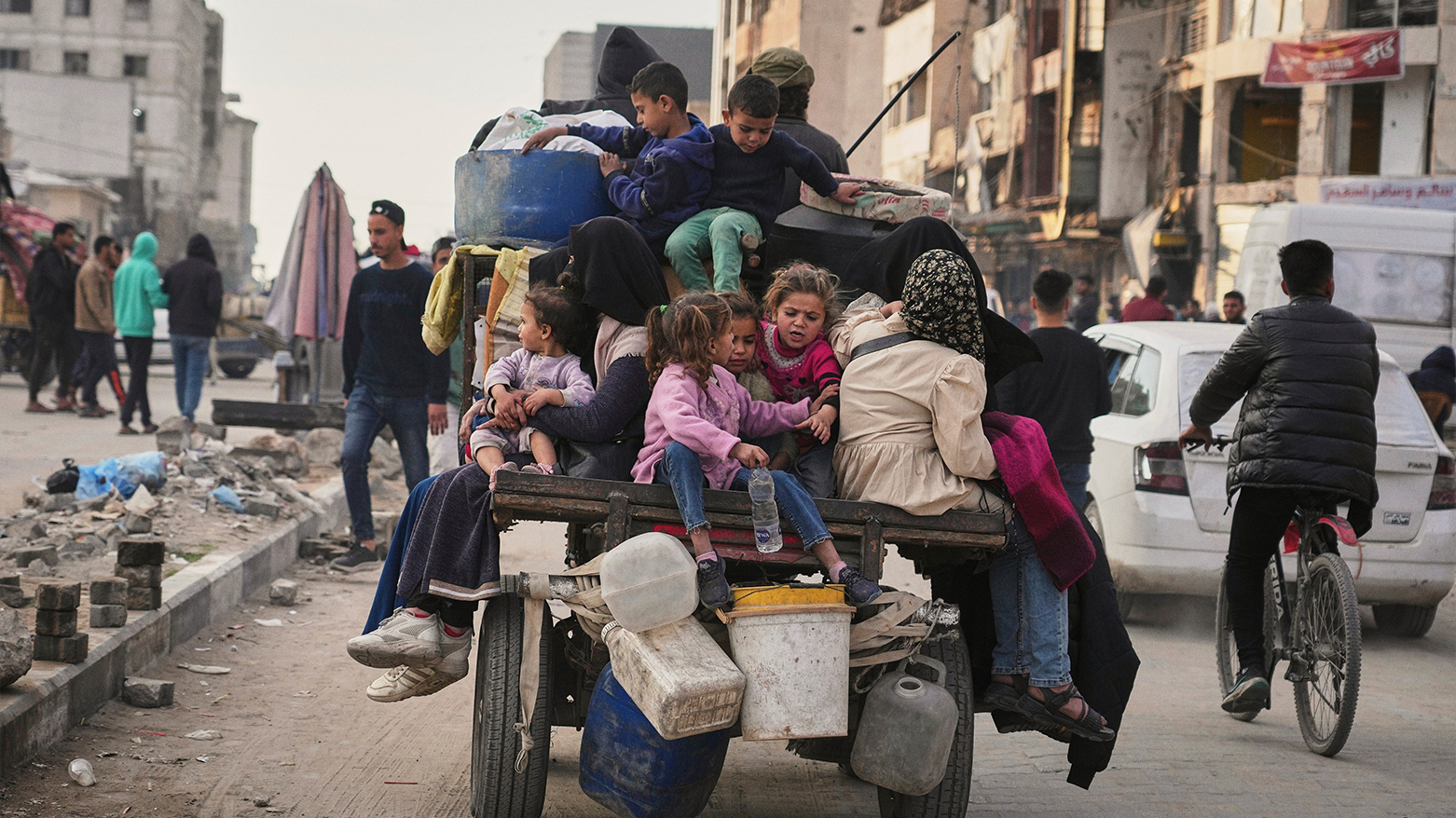Trump Administration Plans Moving 1 Million Gazans to Libya: NBC
As part of the reported discussions, the U.S. has also explored the possibility of releasing billions of dollars in frozen Libyan assets as potential compensation or support for the initiative.

By Kamaran Aziz
ERBIL (Kurdistan24) – The administration of U.S. President Donald Trump is reportedly examining a proposal that would involve the relocation of up to one million Palestinians from Gaza to Libya, according to an in-depth report by NBC News. While no final decision has been made, the concept is said to have been raised in discussions between American and Libyan officials.
According to NBC News, the plan is being considered as part of a broader post-conflict reconstruction vision for Gaza, one that envisions a future marked by peace, development, and stability. The proposal includes the idea of transforming Gaza into what President Trump has previously described as “the Riviera of the Middle East.”
As part of the reported discussions, the U.S. has also explored the possibility of releasing billions of dollars in frozen Libyan assets as potential compensation or support for the initiative.
The proposal remains in the exploratory phase and involves complex logistical considerations. With Gaza’s airport currently inoperable, any air-based relocation would require transit through Egypt. Alternative routes by land or sea—such as a 1,300-mile land corridor to Benghazi or maritime transport across the Mediterranean—would present significant operational challenges, especially given the scale of the undertaking.
NBC News cited three sources with direct knowledge of the discussions—two current U.S. officials and one former official—who confirmed that the idea has surfaced during internal deliberations. While no official agreement has been reached, Israeli authorities have reportedly been kept informed about the concept.
The U.S. State Department and the National Security Council initially declined to comment. However, NBC News indicated that following the publication of the story, a spokesperson dismissed the report, stating, “These reports are untrue. The situation on the ground is untenable for such a plan. Such a plan was not discussed and makes no sense.”
The plan, if realized, would require careful coordination with regional partners. Libya’s population is approximately 7.36 million, and integrating an additional million would be a substantial demographic shift. So far, officials from both Libya’s Tripoli-based government and the eastern authorities led by Khalifa Haftar have not issued statements in response to the report.
Libya continues to face significant internal challenges following the 2011 fall of Moammar Gadhafi. According to U.S. State Department advisories, the country remains affected by civil unrest, armed conflict, and humanitarian concerns.
In Gaza, the proposal has sparked reactions from the Palestinian leadership.
Senior Hamas official Basem Naim told NBC News that Palestinians have deep ties to their land and would resist efforts at relocation. “They are very rooted in their homeland,” he said, expressing doubts that such a proposal would gain acceptance among the local population.
President Trump has previously expressed concern about the security situation in Gaza, suggesting that a safer and more prosperous environment elsewhere might offer Palestinians a better future. In past discussions with Israeli Prime Minister Benjamin Netanyahu, he reportedly raised the idea of creating a space where Palestinians could live “without being shot, without being killed.”
NBC News also reported that alternative relocation destinations have been considered, including post-Assad Syria, where a new government under President Ahmad al-Sharaa recently came to power. In a possible sign of changing policy, President Trump announced the lifting of sanctions on Syria earlier this week and briefly met with Ahmed al-Sharaa.
Although the proposal remains speculative and without official confirmation, its broader context reflects the Trump administration’s continued interest in reimagining the future of Gaza and its people. The full implications of any such policy would depend on international cooperation, voluntary participation, and long-term strategies for regional peace and stability.
